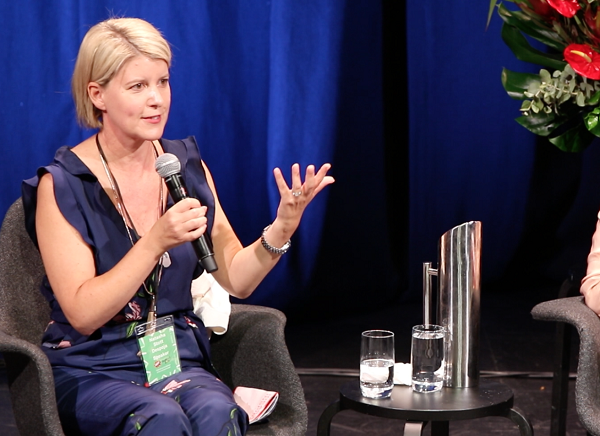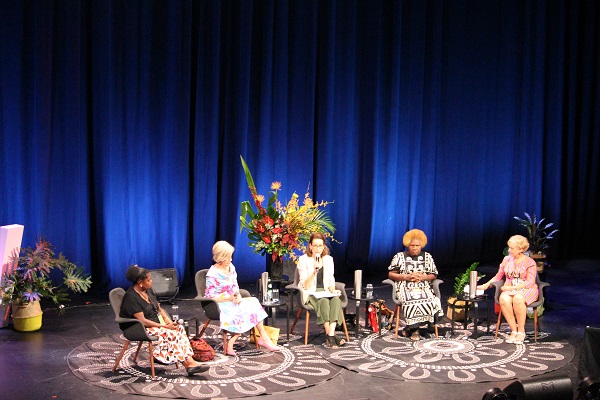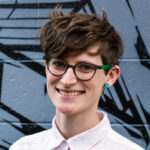As human beings, storytelling is fundamental to our culture and history. It is also a key element to bringing about gender equality through collective learning. The recent Women of the World Festival connected women from over 20 countries, and enabled the sharing of stories across geographical boundaries.
Over the weekend we heard authentic voices and heartfelt messages from a large network of women and men who are actively shaping and re-imaging their societies for the future. A mentor once advised me that it is the role of those in the room to keep sharing the knowledge. In this spirit, here are some of these powerful accounts.

Welcome to Country by Songwoman Maroochy Barambah of the Turrbal People
Women from all walks of life came together for the weekend. Walking into WOW with my own mother, we heard statistics that turned our heads and stories that fired our hearts. All throughout the event, representation and inclusion were recurring themes, with Natasha Stott Despoja, former Ambassador for Women and Girls reinforcing the old adage: We can’t be what we can’t see. Women remain underrepresented in decision-making roles, even though 52 per cent of the world’s population is female. How can we, as women, embrace the notion of a leader, when people say you don’t look like one?

Dame Quentin Bryce and Virginia Haussegger AM, Director of the 50/50 by 2030 Foundation
The answer came as a clarion call through each woman’s heart and spirit. Founder of WOW, Jude Kelly noted that leadership is not about your job or your title, but rather how you use your skills to make change. Nicole Gibson, the youngest Commonwealth Commissioner for Health in the world spoke passionately about steeping our actions in love, not fear and offered practical advice for moving forward. In a world where judgement is rife, we can make a choice to turn that judgement into curiosity. Grounded in love and acceptance, as well as a desire to know more, it enables learning to come naturally.
Plant the trees under which you will never sit
Given the diversity of participants, this curiosity and willingness to learn from others were fundamental to fostering an environment where everyone’s successes and challenges could be shared with great honesty and openness. Margaret Busby, Britain’s youngest, and first black woman publisher in the 1960s shared the wisdom of her mentors to plant the trees under which you will never sit. A beautiful directive, it resonated with Stott Despoja’s message that it is not good enough for one woman to make it, you’ve got to make a difference for all the women coming after you.

Natasha Stott Despoja: “You’ve got to make a difference for all women coming after you”.
Intersectionality was not just a tokenistic message at WOW, but a lived reality, with the continuous acknowledgement that women’s lives are multifaceted and affected by factors such as race, ethnicity, ability, sexuality, religion, and culture. Urvashi Butalia, founder of India’s first feminist publishing house Kali for Women, urged participants to find ways to interweave history and cultural appropriateness into feminism, so that it will benefit all women, regardless of their background.
Generations of wisdom was distilled in the words of the first Sri Lankan to climb Mt Everest, gender specialist Jayanthi Kuru-Utumpala, who noted that everyone is climbing their own Mt Everest: from the young school girls in Sri Lanka who are told that boys come first, to the individuals participating in WOW who were just starting to find their own voice and leadership. Jasvinder Sanghera, founder of Karma Nirvana, a British award-winning charity, reflected on the importance of owning your story in order to become a leader. Jude Kelly also remarked that things that appear as disadvantages at a first glance, can often turn out to be the driving force for leadership.
The desire to create real change in society was tangible, with no topic too small for exploration: from hair to climate change, from carers to colonisation. ‘Keep at it until you are exhausted, or you win.’ was the key message from Kateri Akiwenzie-Damm, an Anishinaabe writer and founder of Kegedonce Press in Canada, who spoke about the strength it takes to meet both your personal goals and advance the greater gender equality. Acknowledging that communication and connection can save lives, Mikhara Ramsing, founder of Ethnic LGBT+ reiterated the importance of sharing individual stories.
Keep at it until you are exhausted, or you win
Working collaboratively and expressing thoughts and stories has been essential to driving change in the past. We know that sometimes sharing a snippet of our lives, our experiences of both pain and celebrations can unify us, create emotional connections, and build empathy. The WOW event reinforced the importance of this collective education, and showcased the significance of storytelling as the key building block for gender equality.

The panel (L-R): Lisa Mumbin (Jawoyn Northern Territory), Dame Quentin Bryce, Virginia Haussegger AM, Agnes Titus (Bougainville) and Gina Fairfax
The Global WOW Festival was founded by Jude Kelly CBE in 2010.
In Australia WOW Festival 2018 was produced and curated by a Brisbane team led by Cathy Hunt




